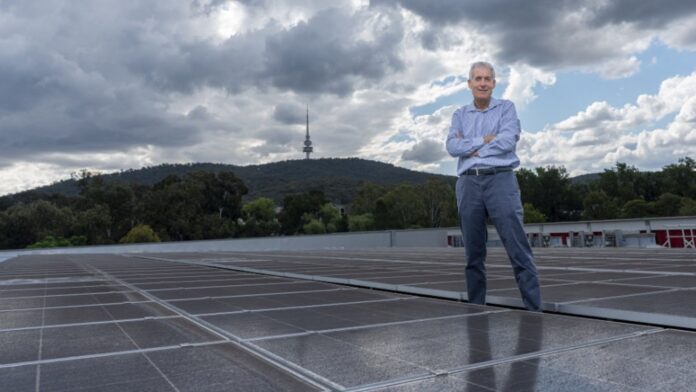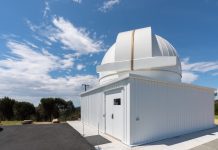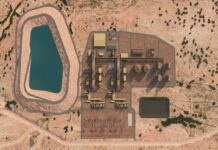
Australian National University’s (ANU) internationally renowned solar energy expert who helped change the efficiency of solar cell technology has been awarded the Queen Elizabeth Prize for Engineering (QEPrize).
The development of Passivated Emitter and Rear Cell (PERC) solar photovoltaic technology has earned ANU’s Professor Andrew Blakers, his former PhD supervisor UNSW Professor Martin Green, Dr Aihua Wang, and Dr Jianhua Zhao the 2023 QEPrize.
PERC technology is simple to build and can generate more electricity than other solar systems. PERC is now the most commercially feasible silicon solar cell technology used in solar panels, accounting for over 90% of the world’s solar cell industry, making it the global standard after decades of advances and input from numerous scientists and companies.
Professor Blakers said it’s an honour to win the 2023 QEPrize. Professor Blakers stated that as a PhD researcher at UNSW working on high-efficiency silicon solar cells, it was a dream to think their work could have a global impact.
“I am delighted to share this prize with Professor Green, Dr Wang and Dr Zhao, who have made major contributions to solar energy over many decades,” Professor Blakers added.
According to ANU, fast forward four decades, and PERC solar cells have driven exponential development in the adoption of high-performance, low-cost solar electricity all across the world. PERC is currently playing an essential role in decarbonising energy systems in Australia and worldwide.
By enhancing the quality of both the top and back surfaces of ordinary silicon cells, the 2023 Laureates significantly enhanced the energy conversion efficiency of commercial solar cells on the market. PERC added a layer to the rear surface that helped reflect unused photons back into the silicon, generating more electrons and increasing energy efficiency.
ANU said the 2023 recipients have considerably decreased the costs of solar panels through their work on PERC technology, with the cost of solar power generation falling by more than 80% in the recent decade, making solar the cheapest source of electricity in most nations.
Professor Blakers aims to use his newfound position as a QEPrize recipient to emphasise the significance of rapid solar adoption in combating the issue of global warming.
“Solar energy is enormously abundant nearly everywhere. Silicon solar cells allow clean and affordable electrification of energy-poor rural areas across Asia, Africa and the Americas. This energy source creates large opportunities for billions of people to improve their economic, educational and social positions without the destruction caused by fossil fuels,” Professor Blakers said.
Professor Blakers added that based on current growth rates, silicon solar cells will have more installed power generation capacity in 2031 than coal, gas, nuclear, and hydro combined.
“Silicon solar cells provide the cheapest energy source in history. Universal access to very cheap and abundant solar and wind energy allows the elimination of fossil fuels, resulting in an 80 per cent reduction in global greenhouse emissions,” he added.
Professor Green said: “I am honoured to share this esteemed award with Andrew. As engineers, we are constantly striving to improve the world we live in. As the world feels the devastating impacts of our changing environment and collapsing ecosystems, I feel passionately that we must rapidly reduce our reliance on fossil fuels if we wish to maintain the trajectory of human civilization on our shared planet.”



















